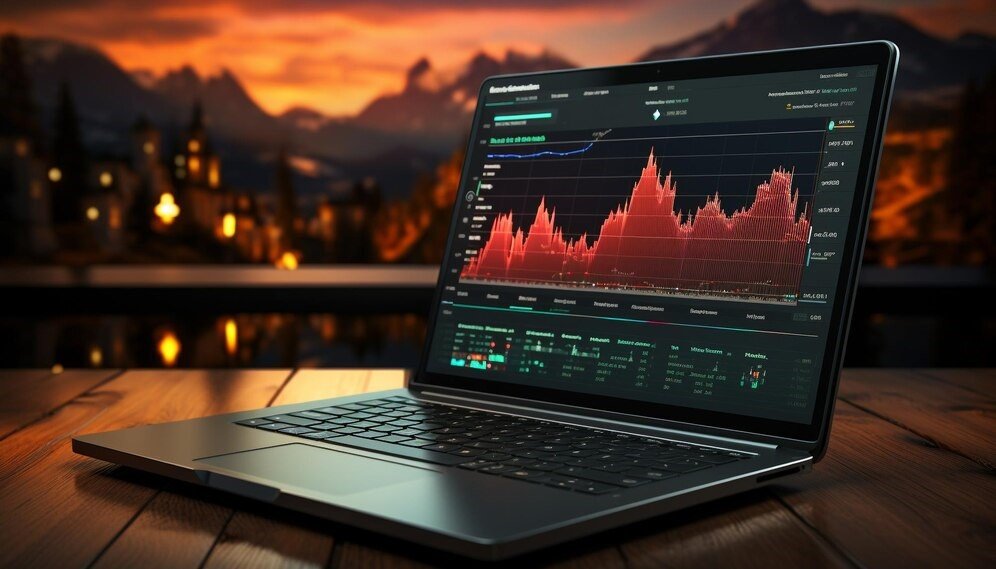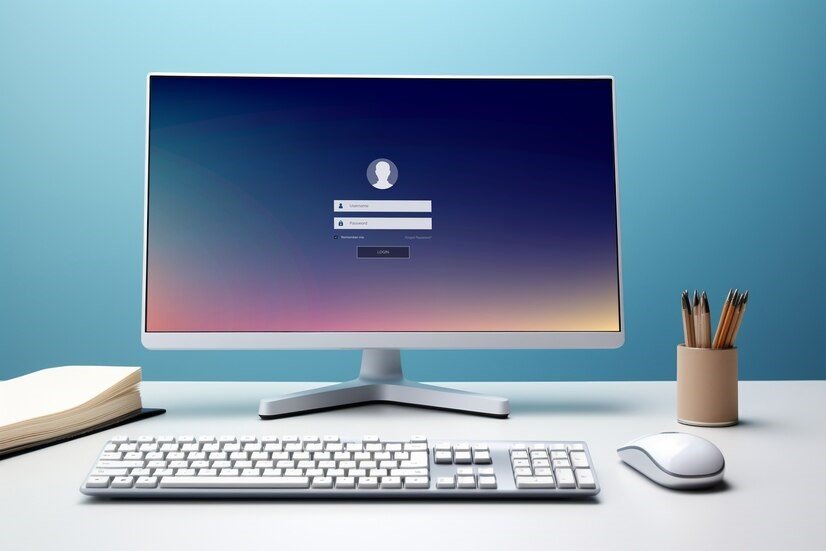In today’s interconnected world, the digital realm holds a treasure trove of information about our lives. From social media profiles to online banking details, we entrust countless aspects of our personal information to various platforms. However, what happens when this vault of data falls into the wrong hands? Recently, one such breach has shaken the genetic testing industry as hackers successfully infiltrated the renowned DNA analysis service provider 23andme Data Breach. This alarming development not only raises concerns about privacy but also underscores the need for robust security measures in an increasingly digitized world.
So sit tight as we delve into the details of this shocking data breach and explore its repercussions on ancestral data for millions around the globe. Be prepared to discover how you can safeguard your personal information from falling victim to cybercriminals’ prying eyes!
Table of Contents
What is 23andme Data Breach and How Does it Work?
You may have heard about 23andme Data Breach in the news recently, but what exactly is it and how does it work? Well, let me break it down for you.
At its core, 23andMe is a direct-to-consumer genetic testing company that provides individuals with insights into their ancestry and health traits based on their DNA. All you have to do is order a kit online, which includes a saliva collection tube. Once your kit arrives, simply provide a small sample of your saliva by spitting into the tube and send it back to the company.
Once they receive your sample, 23andme Data Breach extracts the DNA from your saliva and analyzes it using advanced technology. They then compare your DNA to various databases containing information about genetic markers associated with different populations around the world. This allows them to determine where your ancestors likely originated from.
In addition to ancestral information, 23andme Data Breach also offers reports on certain health conditions and traits that are influenced by genetics. These can include things like carrier status for certain diseases or predispositions for certain traits like hair color or lactose intolerance.
It’s important to note that while this type of testing can provide fascinating insights into our genetic makeup, there are also privacy considerations to keep in mind. We’ll delve more into that later in this article.
Overall, 23andme Data Breach harnesses the power of modern science to give everyday people access to detailed information about their ancestry and potential health traits through simple at-home testing kits. It’s an exciting development in personal genomics that has gained popularity among millions around the world!
The Impact of the Breach on Ancestral Data
The recent breach at 23andMe has left millions of users concerned about the security of their ancestral data. This breach has potentially exposed sensitive information, including genetic profiles and family history, to hackers with malicious intent.
For many individuals, their ancestral data holds deep personal significance. It not only reveals fascinating insights into their heritage but can also provide crucial information about potential health risks. The unauthorized access to this data poses a significant risk to both privacy and security.
With the breach, there is legitimate concern that this stolen data could be used for nefarious purposes such as identity theft or even sold on the dark web. Additionally, compromised genetic profiles may lead to discrimination in areas such as employment or insurance coverage.
Furthermore, the breach raises questions about the broader implications of storing highly personal and sensitive data online. As more individuals turn to genetic testing services like 23andMe for insights into their ancestry and health traits, ensuring robust security measures becomes paramount.
It is essential that companies like 23andMe take immediate action to address this breach and reinforce cybersecurity protocols. Users should be promptly informed about any potential risks resulting from the incident and provided with clear instructions on how to protect themselves against possible repercussions.
In an age where our digital footprint continues to expand exponentially, it is vital for individuals to take proactive steps in safeguarding their personal information online. This includes using strong passwords, enabling two-factor authentication whenever possible, regularly updating software applications/devices for enhanced security features, avoiding suspicious emails/links/phishing attempts etc.,
While advancements in technology have undoubtedly brought incredible benefits – such as uncovering our ancestral roots – we must remain vigilant regarding data protection and privacy concerns associated with these innovations.
Steps Taken by 23andMe to Address the Breach
In light of the recent breach that compromised ancestral data for millions of users, 23andme Data Breach wasted no time in taking swift action to address the situation. Recognizing the gravity of the breach and its potential impact on user privacy, the company immediately launched a thorough investigation into how it occurred.
First and foremost, 23andMe implemented enhanced security measures to fortify their systems against future attacks. They bolstered their existing encryption protocols, ensuring that sensitive user information remains secure and inaccessible to unauthorized individuals.
To further protect their users, 23andMe also strengthened their authentication processes. This includes implementing multi-factor authentication methods, such as requiring additional verification steps when accessing sensitive account information or making changes to personal details.
As part of their commitment to transparency and accountability, 23andMe promptly notified affected users about the breach. They provided clear instructions on how individuals can take proactive steps to safeguard their personal data moving forward.
Additionally, 23andMe has collaborated with cybersecurity experts and law enforcement agencies to investigate the extent of the breach and identify any potential perpetrators. By working closely with these entities, they aim not only to bring those responsible for this intrusion to justice but also prevent similar incidents from occurring in the future.
It is evident that 23andMe has responded swiftly and decisively in addressing this alarming data breach. Their implementation of robust security measures demonstrates a sincere commitment towards protecting user privacy while actively seeking ways to prevent such breaches from happening again.
Tips for Protecting Your Personal Data Online
1. Use Strong, Unique Passwords: One of the simplest yet most effective ways to protect your personal data online is by using strong and unique passwords for each of your accounts. Avoid common words or easily guessable combinations such as “123456” or “password.” Instead, opt for a mix of upper and lowercase letters, numbers, and special characters.
2. Enable Two-Factor Authentication: Another layer of security you can add is enabling two-factor authentication (2FA) on your accounts. This means that in addition to entering your password, you will also need to provide a second form of verification such as a unique code sent to your phone or email.
3. Be Cautious with Emails and Links: Phishing emails are a common tactic used by hackers to trick people into revealing their personal information. Always be cautious when clicking on links or downloading attachments from unfamiliar senders.
4. Keep Software Updated: Regularly updating your operating system, antivirus software, and other applications is crucial for protecting against known vulnerabilities that hackers may exploit.
5. Limit Sharing on Social Media: While social media platforms offer great connectivity opportunities, it’s important to be mindful about the information you share publicly. Avoid sharing sensitive details like your full address or birthdate openly.
Remember that cyber threats are constantly evolving; staying informed about current scams and best practices will go a long way in safeguarding your personal data online without compromising convenience!
The Importance of Genetic Privacy
In today’s digital age, where personal information is constantly being shared and stored online, the importance of genetic privacy cannot be overstated. The rise in popularity of genetic testing services like 23andme Data Breach has brought to light the need for individuals to protect their ancestral data from potential breaches.
Genetic information is incredibly personal and sensitive. It contains not only details about our own health risks but also those of our family members. This data can be invaluable to researchers and medical professionals seeking to understand diseases and develop new treatments. However, it must be handled with utmost care.
When a breach occurs, as we have seen with the recent attack on23andme Data Breach, it puts individuals at risk of having their private genetic information exposed. This could lead to discrimination by insurance companies or employers based on preexisting conditions revealed in the data.
Moreover, unauthorized access to one’s genetic data can have far-reaching consequences beyond immediate discrimination concerns. It opens up possibilities for targeted advertising or even identity theft if combined with other personal information that may already be available online.
Protecting our genetic privacy requires a multi-faceted approach. First and foremost, choosing reputable companies with strong security measures in place is essential when opting for genetic testing services like 23andMe. Additionally, individuals should carefully read all terms and conditions before consenting to share their DNA samples or allowing access to their results.
Creating unique passwords for each online account associated with genetics is another crucial step towards safeguarding this sensitive information from hackers’ prying eyes. Regularly updating these passwords ensures an added layer of protection against potential breaches.
Furthermore, staying informed about any news regarding cybersecurity threats within the industry helps us remain vigilant against emerging risks that may compromise our genetic privacy.
As technology continues advancing at an unprecedented pace, so too does the need for increased awareness surrounding issues related to genetic privacy. By taking proactive steps to protect ourselves and demanding transparency from service providers, we can help ensure our ancestral data remains secure.
Conclusion: The Future of Genetic Testing and Data Security
As we move forward in the era of advanced technology and scientific discoveries, genetic testing has become increasingly popular. Companies like 23andMe have made it possible for individuals to uncover their ancestral roots and gain valuable insights into their health risks. However, as with any form of data collection, there are always risks involved.
The recent breach at 23andme Data Breach serves as a stark reminder that our personal information is constantly under threat from malicious hackers. While steps have been taken by the company to address the breach and protect user data, it’s crucial for individuals to take responsibility for safeguarding their own privacy online.
In an age where our digital footprint continues to expand, it’s imperative that we remain vigilant about protecting our personal data. Here are a few tips to help ensure your genetic information remains secure:
1. Regularly update your passwords: Use strong, unique passwords for all your online accounts and change them regularly.
2. Enable two-factor authentication: This adds an extra layer of security by requiring you to provide additional verification beyond just a password.
3. Be cautious of phishing attempts: Avoid clicking on suspicious links or providing personal information in response to unsolicited emails or messages.
4. Keep software up-to-date: Regularly update your devices’ operating systems and applications to ensure you have the latest security patches installed.
5. Read privacy policies carefully: Before using any service that collects personal information, make sure you understand how they handle and protect that data.
6. Limit sharing on social media: Be mindful of what you share publicly on social media platforms, as this information can be used by cybercriminals to target you.
7. Consider encrypting sensitive files: If you store important documents or files containing sensitive data on your computer or cloud storage services, consider encrypting them for added protection.
8. Stay informed about cybersecurity best practices: Educate yourself about current threats and strategies for staying safe online.





